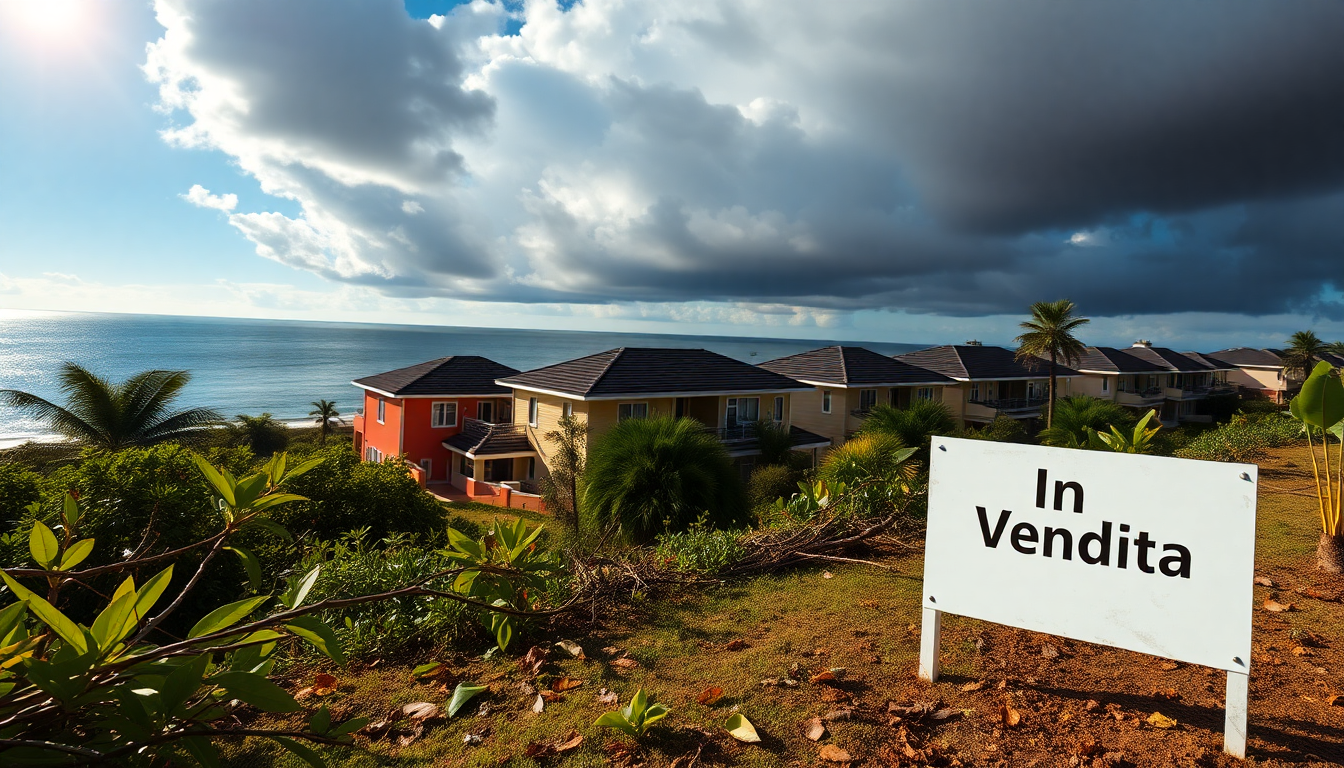Table of Contents
As we navigate the ever-changing landscape of real estate, it’s crucial to look beyond just market trends. Have you ever thought about how environmental factors—like tropical weather—can dramatically affect property values? For investors, especially in coastal regions, understanding the impact of tropical depressions and typhoons is key. Let’s dive into how these weather patterns can play a significant role in shaping property sales, rental demand, and overall market stability.
Market Overview: How Weather Influences Property Values
The relationship between weather and real estate is more complex than you might think. Take the recent forecast of a tropical depression heading toward coastal areas, for example. Such events can disrupt not just immediate safety but also long-term property values. According to real estate data, properties in regions vulnerable to severe weather often see their market performance fluctuating. When a major weather event looms, potential buyers tend to hesitate, causing a dip in demand and possibly lower prices.
Furthermore, properties situated in high-risk areas—like those near shorelines—force investors to consider extra factors such as insurance costs and the likelihood of damage. Various studies indicate that homes located in prime areas, which are less susceptible to extreme weather, usually hold their value better over time. Here, the mantra of “location, location, location” couldn’t be more relevant.
Analyzing Affected Regions and Property Types
When we talk about the impact of tropical weather on real estate, it’s essential to look at specific regions and property types that are likely to be affected. Coastal cities, particularly those in tropical zones, are at a higher risk for severe weather disruptions. Just recently, properties in Hong Kong faced a No. 1 typhoon warning, prompting both caution and a reevaluation of property values in that area.
In these regions, waterfront properties often present a mixed bag: their stunning views and prime locations can drive demand, yet the risk of flooding and storm damage can make buyers think twice. Investors must balance the allure of location with the potential for loss, making thorough research and risk assessment essential to their investment strategy. Plus, properties designed to withstand adverse weather—like those with elevated foundations or hurricane-resistant materials—might see an uptick in demand as safety becomes a top priority for buyers.
Price Trends and Investment Opportunities
The pricing dynamics in real estate markets influenced by tropical weather are anything but straightforward. As tropical systems approach, it’s common to see a temporary dip in sales activity, with buyers adopting a cautious wait-and-see approach. But here’s where it gets interesting: this can create unique opportunities for investors who are ready to act. Historically, after a weather event passes, the market often rebounds, sometimes leading to a surge in demand as buyers come back to the table.
Understanding these cyclical trends can give savvy investors a competitive edge. For instance, properties that might be undervalued during a storm’s approach could turn out to be excellent investment opportunities once normalcy returns. Keeping an eye on property values in the weeks following a weather event can reveal advantageous purchasing conditions, as the market often recalibrates during this time.
Practical Tips for Buyers and Investors
If you’re looking to navigate the complexities of investing in real estate impacted by tropical weather, adopting a strategic approach is essential. First off, make sure to conduct thorough due diligence. This means researching historical weather patterns and their effects on property values in your target area.
Next, think about the potential for future weather events when evaluating your return on investment (ROI) and cap rates. Properties that boast features enhancing resilience against extreme weather might not only hold their value better but could also provide attractive cash flow opportunities in the long run. Don’t forget to stay aware of local regulations regarding construction and renovations, especially in coastal areas where building codes may be stricter due to environmental concerns.
Finally, keep up with market trends and forecasts. Engaging with real estate professionals who specialize in your local market can provide invaluable insights that will inform your investment decisions.
Medium-Term Forecasts and Market Predictions
Looking ahead, the connection between real estate and tropical weather is likely to remain significant. As climate change continues to alter weather patterns, investors may need to adjust their strategies accordingly. This could involve focusing on properties in areas less prone to severe weather or investing in developments that prioritize sustainability and resilience.
In conclusion, while tropical weather presents challenges for the real estate market, it also opens up avenues for strategic investment. By grasping how weather impacts property values, investors can position themselves to seize opportunities that arise in the aftermath of weather events. Remember, in real estate, informed decisions are the key to success!


